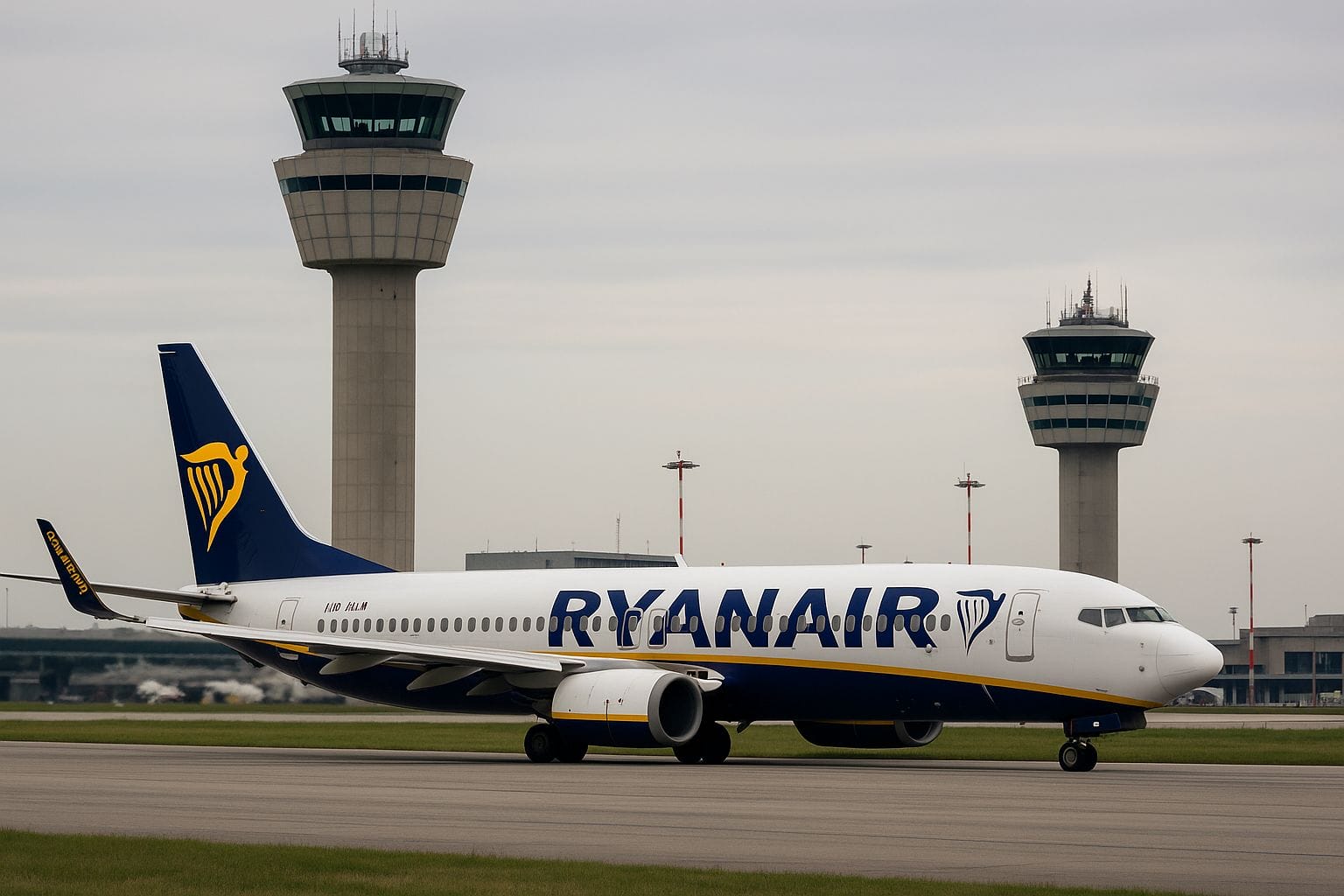As summer travel intensifies across Europe, Ryanair, Europe’s largest low-cost carrier, has publicly called on the European Commission to take urgent action against underperforming Air Traffic Control (ATC) providers in five of the continent’s busiest aviation markets—France, Spain, Germany, Greece, and the United Kingdom. According to Ryanair, these countries are responsible for the majority of flight delays across Europe, causing significant disruption to passengers and contributing to unnecessary environmental impact.
Summer Air Travel Faces New Headwinds
In a strongly worded statement issued this week, Ryanair CEO Michael O’Leary criticized the “hopeless mismanagement” of ATC systems in the affected countries, highlighting persistent issues of short-staffing, inefficiency, and lack of accountability.
“If the Danes, the Belgians, the Dutch, the Irish, and the Slovakians can properly staff their ATC services and eliminate capacity-related delays, then it is unacceptable that better-funded systems in France, Germany, Spain, Greece, and the UK continue to fail passengers,” said O’Leary.
The airline has flagged that over 90% of Europe’s flight delays in 2024 were linked to insufficient staffing and poor operational performance from these state-run ATC monopolies. Ryanair claims these delays have led to longer flight paths, holding patterns, and increased fuel burn—contributing up to 10% more aviation emissions in Europe annually.
The Contrast: Well-Managed Versus Failing ATCs
Ryanair praised the operational effectiveness of ATC systems in countries like Ireland, Denmark, Belgium, the Netherlands, and Slovakia, which have successfully delivered punctual and uninterrupted air traffic services despite the same seasonal pressures.
These positive examples, the airline argues, prove that effective ATC performance is not only achievable but scalable across the EU—provided that governments commit to proper staffing, training, and modernization.
“These countries show what good ATC management looks like,” said O’Leary. “They’ve eliminated avoidable delays and ensured reliability. It’s time for others to follow suit or open the sector to competition.”
Critique of the EU’s SESAR Project
Ryanair also took aim at the European Commission’s Single European Sky ATM Research (SESAR) initiative, which has aimed for two decades to integrate and optimize air traffic control across EU member states. Despite billions in investment, the project has not yet resolved core inefficiencies in the fragmented ATC network.
Ryanair argues that the lack of centralized oversight and the protection of national monopolies have obstructed SESAR’s objectives, undermining the broader vision for a Single European Sky that improves competitiveness, environmental sustainability, and passenger satisfaction.
Growing Economic and Environmental Impact
ATC-related delays do not only affect passenger convenience but also have significant economic and environmental repercussions. According to Ryanair, the cumulative effect of delays includes:
- Increased airline operational costs (due to rerouting, fuel consumption, and crew overtime)
- Reduced airport efficiency and turnaround times
- Higher carbon emissions as planes are forced into inefficient holding patterns
- Disruption to tourism flows and inter-European commerce, especially during peak holiday months
The situation is especially concerning for summer 2025, with travel demand surging beyond pre-pandemic levels. Airlines and tourism sectors are investing heavily in recovery, only to face setbacks caused by avoidable airspace inefficiencies.
Ryanair’s Demands to the European Commission
Ryanair is calling on the European Commission and President Ursula von der Leyen’s administration to:
- Mandate proper staffing levels at all ATC centres across the EU
- Enforce operational efficiency standards for member state ATC providers
- Open national ATC services to competition, particularly in consistently underperforming countries
- Establish a central EU monitoring body to track ATC delay causes and implement corrective actions
The airline also hinted at the potential for legal or regulatory action if no substantive reforms are initiated within the coming months.
Broader Implications for the Travel Sector
Ryanair’s statement has reignited debate within the European aviation community over how best to tackle long-standing infrastructure inefficiencies. Industry experts and tourism boards have echoed the sentiment that delays and unreliability in Europe’s airspace threaten to undermine the continent’s reputation as a seamless travel destination.
According to Eurocontrol, over 15 million passengers experienced ATC-related delays in the summer of 2024 alone—up by 12% from the previous year. With the EU Green Deal and Net Zero 2050 targets in focus, reducing delays and emissions from unnecessary flight path deviations is seen as a low-hanging fruit.
Looking Ahead
As the European tourism sector anticipates record-breaking travel numbers in 2025, Ryanair’s campaign adds momentum to the call for urgent, unified reform of Europe’s air traffic control infrastructure. With technological innovation, digital transformation, and sustainable aviation taking centre stage, ATC modernization and efficient staffing must become a top policy priority for the European Commission.
In the words of O’Leary:
“Europe’s skies don’t need more investment plans or empty promises. They need competent management, accountability, and a commitment to serving passengers—not bureaucracy.”
For more travel news like this, keep reading Global Travel Wire


















